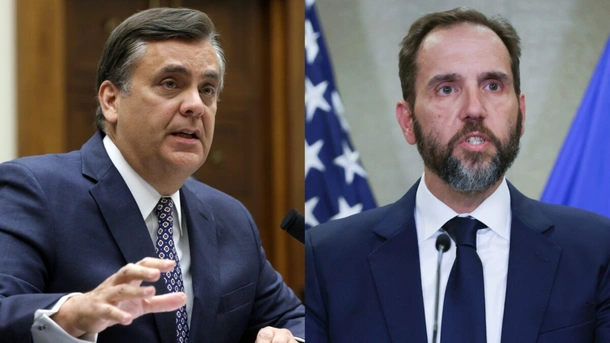Turley Raises Concerns About Trump's Case: Conviction Would Require Serious Erosion of First Amendment Rights, Says Jack Smith
In an op-ed published by The Hill, attorney and law professor Jonathan Turley expressed concerns about the legal basis for convicting former...

Concerns about the Legal Basis for Convicting Trump
In an op-ed published by The Hill, attorney and law professor Jonathan Turley expressed concerns about the legal basis for convicting former President Donald Trump in relation to the January 6, 2021, Capitol riot. Turley argued that the indictment threatens the First Amendment by potentially criminalizing false statements. Trump was recently indicted on four charges, including conspiracy to defraud the United States, conspiracy to obstruct an official proceeding, obstruction of an official proceeding, and conspiracy against rights. He has pleaded not guilty to all charges.
Charges Against Trump
According to Turley, former President Donald Trump was not charged with conspiracy to incite violence or insurrection. Instead, he was charged for spreading false information about election fraud and claiming that he had won the election. Turley argues that in order to secure convictions for this, the Special Counsel would have to disregard the First Amendment and existing case law that protects even false statements.
Constitutional Protection of False Statements
According to a government statement, the Constitution protects false statements made during political campaigns. However, it is argued that former President Trump must have been aware that his statements were false, suggesting that he engaged in fraudulent behavior to obstruct or challenge election results.
Potential Problem with the Indictment
According to a legal expert, there is a potential problem with the indictment against former President Donald Trump. The expert suggests that if Trump genuinely believes that he did not lose the election, the indictment would not hold up. The indictment aims to demonstrate that numerous individuals informed Trump that his claims of a stolen election were untrue.
Ignoring Legal Advice and Relying on a Small Group
In this excerpt, the author, Jonathan Turley, claims that former President Donald Trump ignored advice from legal analysts, including himself, and instead relied on a small group of lawyers who convinced him that there was evidence of widespread election fraud.
Seeking "Enablers" and Politicians' Behavior
The article discusses the concept of seeking "enablers" who tell politicians what they want to hear. It mentions that former President Donald Trump had the freedom to do so, but argues that even President Joe Biden has engaged in this behavior. An example given is Biden issuing an executive order on an eviction moratorium based on the opinion of a single law professor, which was later deemed unconstitutional by the Supreme Court. The article also highlights instances where Democrats, such as Hillary Clinton and Jamie Raskin, made false claims about Trump's 2016 election victory being illegitimate, but their speech was protected by the Constitution.
Controversy of Linking Claims to Actions
According to legal expert Jonathan Turley, even if former President Donald Trump knew that his claims about election fraud were false, it would still be controversial to directly link his claims to the actions of those who challenged the election results. Turley points to a Supreme Court ruling in United States v. Alvarez, where it was deemed unconstitutional to criminalize lies. In that case, a politician had knowingly lied about his military decorations, but the court prevented Congress from making such lies about military service a criminal offense.
